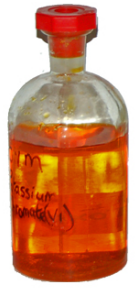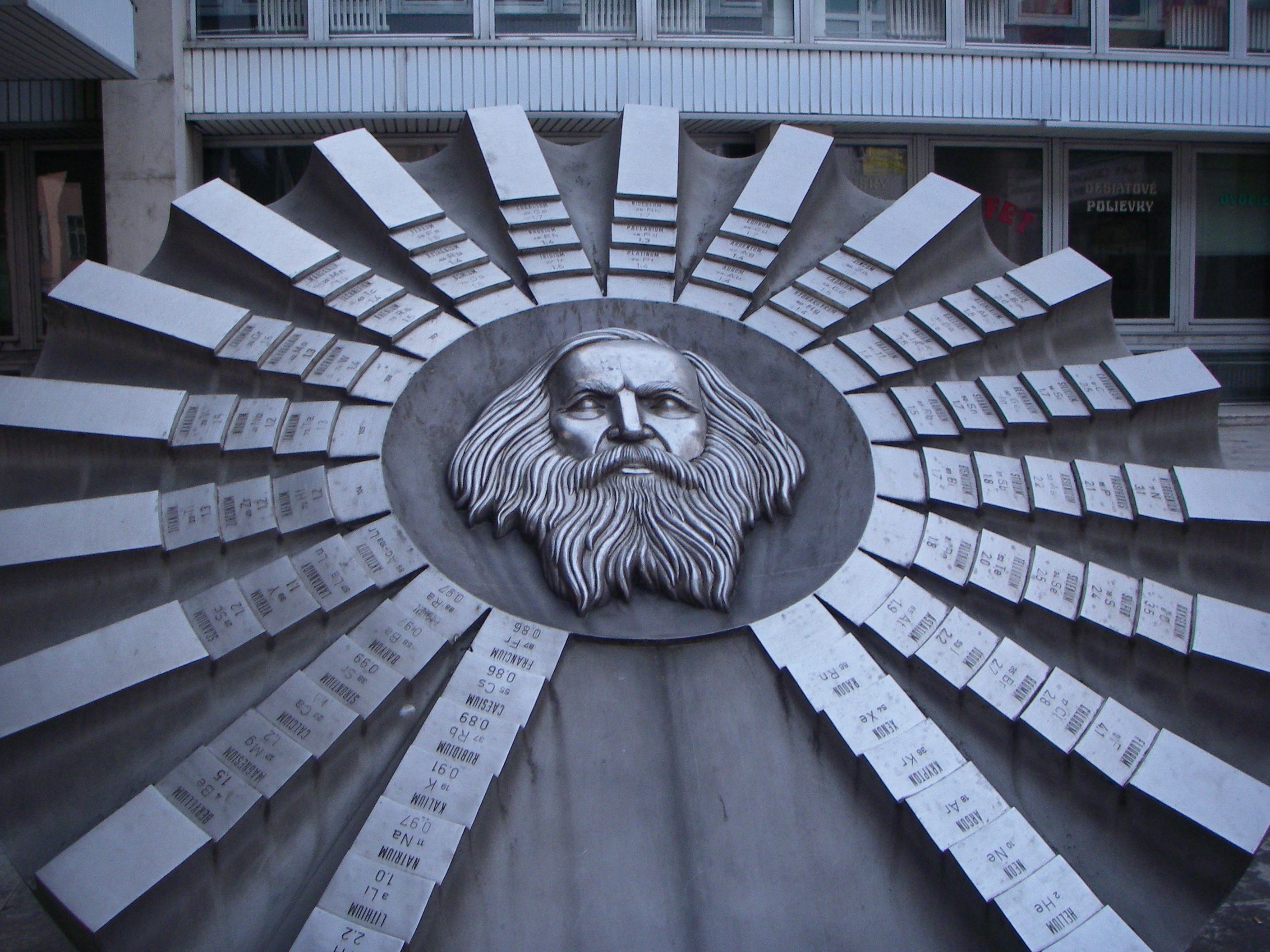|
Kapiton Ushkov
Kapiton Yakovlevich Ushkov ( rus, Капитон Ушков) (1813–1868) was a Russian serf who became a major chemical industrialist in Tatarstan. He was born in Bonduga, a village near Yelabuga, in Tatarstan. Bonduga was subsequently renamed Mendeleyevsk. Ushkov discovered that the raw materials for potassium bichromate Potassium dichromate, , is a common inorganic chemical reagent, most commonly used as an oxidizing agent in various laboratory and industrial applications. As with all hexavalent chromium compounds, it is acutely and chronically harmful to health ..., a chemical used in the dying process was to be found locally, and so he established a plant for its production in the village of Kokshan. His family included Peter Ushkov (1840–1898) and Konstantin K. Ushkov (1850–1918). References {{authority control Russian chemists 1813 births 1868 deaths ... [...More Info...] [...Related Items...] OR: [Wikipedia] [Google] [Baidu] |
Tatarstan
The Republic of Tatarstan (russian: Республика Татарстан, Respublika Tatarstan, p=rʲɪsˈpublʲɪkə tətɐrˈstan; tt-Cyrl, Татарстан Республикасы), or simply Tatarstan (russian: Татарстан, tt-Cyrl, Татарстан), sometimes also called Tataria (russian: Татария, tt-Cyrl, Татария), is a Republics of Russia, republic of Russia located in Eastern Europe. It is a part of the Volga Federal District; and its capital city, capital and largest city is Kazan, an important cultural centre in Russia. The republic borders Kirov Oblast, Kirov, Ulyanovsk Oblast, Ulyanovsk, Samara Oblast, Samara, and Orenburg Oblasts, the Mari El Republic, Mari El, Udmurt Republic, Udmurt, and Chuvash Republics, and the Bashkortostan, Republic of Bashkortostan. The area of the republic is . The unofficial Tatarstan motto is ''Bez Buildırabız!'' (''We can!''). As of the Russian Census (2021), 2021 Census, the population of Tatarstan was& ... [...More Info...] [...Related Items...] OR: [Wikipedia] [Google] [Baidu] |
Yelabuga
Yelabuga (alternative spelling that reflects the Cyrillic spelling: Elabuga; russian: Елабуга; tt-Cyrl, Алабуга, ''Alabuğa'') is a town in the Republic of Tatarstan, Russia, located on the right bank of the Kama River and east from Kazan. Population: Geography Climate History The former name of the city was Alabuga. Its history dates back to the 10th century, when a Volga Bulgar border castle, the so-called Alamir-Sultan castle was built by Bulgar Khan Ibrahim in 985 CE. The castle was built on the place of the legendary tomb of Alamir-Sultan (Alexander the Great "Macedonian"). The name 'Alabuga' originally referred to the tower of the castle, later the whole city was named Alabuga. The castle was later abandoned, and its remains are now known as ''Şaytan qalası'' (Shaytan's castle). In the second half of the 16th century, a Russian village was founded on the same spot. Administrative and municipal status Within the framework of administrative di ... [...More Info...] [...Related Items...] OR: [Wikipedia] [Google] [Baidu] |
Mendeleyevsk
Mendeleyevsk (russian: Менделе́евск; tt-Cyrl, Менделеевск) is a town and the administrative center of Mendeleyevsky District in the Republic of Tatarstan, Russia, located on the right bank of Nizhnekamskoye Reservoir, from the republic's capital of Kazan. As of the 2010 Census, its population was 22,075. History It was founded as the '' selo'' of Bondyuga () in the 18th century.''Inhabited Localities of the Republic of Tatarstan'', p. 188 It was granted urban-type settlement status and renamed Bondyuzhsky () in 1928. In 1967, it was granted town status and given its present name after Dmitry Mendeleyev, who visited the factory there. Administrative and municipal status Within the framework of administrative divisions, Mendeleyevsk serves as the administrative center of Mendeleyevsky District, to which it is directly subordinated.Order #01-02/9 As a municipal division, the town of Mendeleyevsk is incorporated within Mendeleyevsky Municipal D ... [...More Info...] [...Related Items...] OR: [Wikipedia] [Google] [Baidu] |
Potassium Bichromate
Potassium dichromate, , is a common inorganic chemical reagent, most commonly used as an oxidizing agent in various laboratory and industrial applications. As with all hexavalent chromium compounds, it is acutely and chronically harmful to health. It is a crystalline ionic solid with a very bright, red-orange color. The salt is popular in the laboratory because it is not deliquescent, in contrast to the more industrially relevant salt sodium dichromate.Gerd Anger, Jost Halstenberg, Klaus Hochgeschwender, Christoph Scherhag, Ulrich Korallus, Herbert Knopf, Peter Schmidt, Manfred Ohlinger, "Chromium Compounds" in Ullmann's Encyclopedia of Industrial Chemistry, Wiley-VCH, Weinheim, 2005. Chemistry Production Potassium dichromate is usually prepared by the reaction of potassium chloride on sodium dichromate. Alternatively, it can be also obtained from potassium chromate by roasting chromite ore with potassium hydroxide. It is soluble in water and in the dissolution process it ... [...More Info...] [...Related Items...] OR: [Wikipedia] [Google] [Baidu] |
Peter Ushkov
Peter may refer to: People * List of people named Peter, a list of people and fictional characters with the given name * Peter (given name) ** Saint Peter (died 60s), apostle of Jesus, leader of the early Christian Church * Peter (surname), a surname (including a list of people with the name) Culture * Peter (actor) (born 1952), stage name Shinnosuke Ikehata, Japanese dancer and actor * ''Peter'' (album), a 1993 EP by Canadian band Eric's Trip * ''Peter'' (1934 film), a 1934 film directed by Henry Koster * ''Peter'' (2021 film), Marathi language film * "Peter" (''Fringe'' episode), an episode of the television series ''Fringe'' * ''Peter'' (novel), a 1908 book by Francis Hopkinson Smith * "Peter" (short story), an 1892 short story by Willa Cather Animals * Peter, the Lord's cat, cat at Lord's Cricket Ground in London * Peter (chief mouser), Chief Mouser between 1929 and 1946 * Peter II (cat), Chief Mouser between 1946 and 1947 * Peter III (cat), Chief Mouser between ... [...More Info...] [...Related Items...] OR: [Wikipedia] [Google] [Baidu] |
Konstantin K
The first name Konstantin () is a derivation from the Latin name ''Constantinus'' (Constantine) in some European languages, such as Russian and German. As a Christian given name, it refers to the memory of the Roman emperor Constantine the Great. A number of notable persons in the Byzantine Empire, and (via mediation by the Christian Eastern Orthodox Church) in Russian history and earlier East Slavic history are often referred to by this name. "Konstantin" means "firm, constant". There is a number of variations of the name throughout European cultures: * Константин (Konstantin) in Russian (diminutive Костя/Kostya), Bulgarian (diminutives Косьо/Kosyo, Коце/Kotse) and Serbian * Костянтин (Kostiantyn) in Ukrainian (diminutive Костя/Kostya) * Канстанцін (Kanstantsin) in Belarusian * Konstantinas in Lithuanian * Konstantīns in Latvian * Konstanty in Polish (diminutive Kostek) * Constantin in Romanian (diminutive Costel), French ... [...More Info...] [...Related Items...] OR: [Wikipedia] [Google] [Baidu] |
Russian Chemists
This list of Russian chemists includes the famous chemists and material scientists of the Russian Federation, the Soviet Union, the Russian Empire and other predecessor states of Russia. Alphabetical list __NOTOC__ A *Aleksandr Arbuzov, discovered Arbuzov reaction. B * Alexander Baykov, an academician of the USSR Academy of Sciences. *Ernest Beaux, inventor of Chanel No. 5, ''"the world's most legendary fragrance"'' *Nikolay Beketov, inventor of aluminothermy, a founder of physical chemistry *Friedrich Konrad Beilstein, proposed the Beilstein test for the detection of halogens, author of the Beilstein database in organic chemistry * Boris Belousov, chemist and biophysicist, discoverer of Belousov–Zhabotinsky reaction, a classical example of non-equilibrium thermodynamics *Alexander Borodin, chemist and composer, the author of the famous opera ''Prince Igor'', discovered Borodin reaction, co-discovered Aldol reaction *Aleksandr Butlerov, discovered hexamine, formaldehyde ... [...More Info...] [...Related Items...] OR: [Wikipedia] [Google] [Baidu] |
1813 Births
Events January–March * January 18–January 23 – War of 1812: The Battle of Frenchtown is fought in modern-day Monroe, Michigan between the United States and a British and Native American alliance. * January 24 – The Philharmonic Society (later the Royal Philharmonic Society) is founded in London. * January 28 – Jane Austen's '' Pride and Prejudice'' is published anonymously in London. * January 31 – The Assembly of the Year XIII is inaugurated in Buenos Aires. * February – War of 1812 in North America: General William Henry Harrison sends out an expedition to burn the British vessels at Fort Malden by going across Lake Erie via the Bass Islands in sleighs, but the ice is not hard enough, and the expedition returns. * February 3 – Argentine War of Independence: José de San Martín and his Regiment of Mounted Grenadiers gain a largely symbolic victory against a Spanish royalist army in the Battle of San Lorenzo. * February ... [...More Info...] [...Related Items...] OR: [Wikipedia] [Google] [Baidu] |



